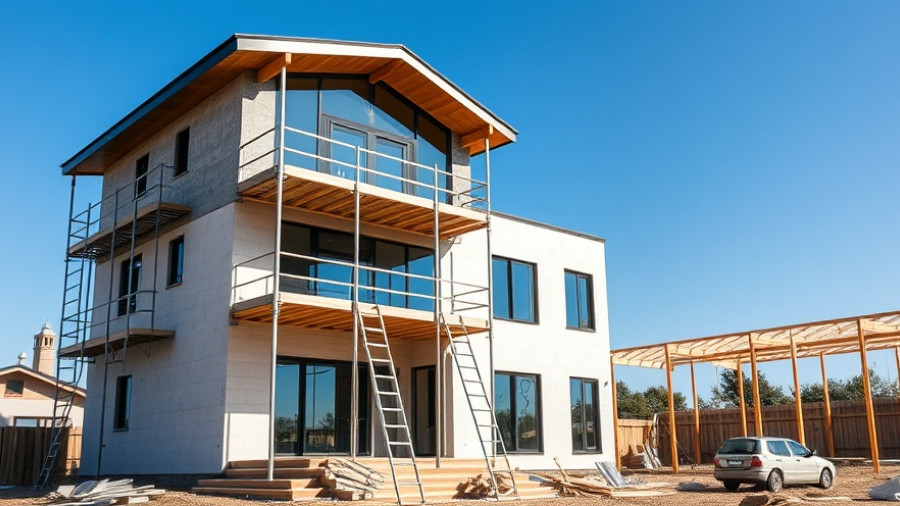
Understanding the Importance of Pre-Construction Success
The success of a construction project often hinges not on the execution itself, but on the planning that precedes it. Rushed feasibility studies, overlooked zoning laws, and underestimated budgets can lead to significant setbacks or even complete project failures. By dedicating time to a robust pre-construction checklist, developers can mitigate these risks and lay the foundation for efficient and successful construction projects.
Essential Components of a Practical Pre-Construction Checklist
Developers need to ensure that several critical components are completed before beginning construction. Site acquisition and due diligence form the bedrock of this checklist. Zoning compliance is paramount—understanding the designated use of a site, height restrictions, density allowances, and parking requirements can dictate project feasibility. Engaging a land use attorney early can streamline this process and avert time-consuming variances that can push project timelines back by 6 to 12 months.
The Role of Environmental and Geotechnical Investigations
Before breaking ground, conducting thorough environmental assessments and geotechnical investigations is essential. Soil testing will uncover vital information about load-bearing capacities and potential environmental hazards that could derail progress later. As noted in recent insights from Hale Design Build, knowing the soil profile can save developers considerable costs compared to addressing surprises during construction. A Phase I Environmental Site Assessment is also critical, identifying contamination risks that may necessitate remediation efforts.
Budgeting: An Integral Step in Pre-Construction Planning
Budgeting involves more than just tallying up projected costs for materials, labor, and permits. Developers should create comprehensive financial plans that set aside contingencies for unexpected expenses, particularly in coastal areas where weather-related events can complicate construction efforts. Clear documentation of budgetary elements, as emphasized in the Contractor Foreman checklist, provides transparency and assists in tracking project expenses effectively.
Team Coordination: How to Build Your Construction Dream Team
Forming the right team of construction professionals is crucial. Having local experts who understand the regional challenges of coastal construction can be indispensable. Their familiarity with local regulations and material requirements can expedite processes and enhance project outcomes. Defining roles, responsibilities, and communication protocols early ensures that everyone knows their tasks, avoiding the pitfalls of miscommunication that can lead to costly delays.
Final Alignment: The Pre-Construction Meeting
Before commencing actual construction, a final review with key stakeholders is vital. This pre-construction meeting serves as a platform to align all team members on project objectives, expected timelines, and communicate any final concerns. Proper documentation during this meeting can help prevent misunderstandings down the line, allowing for a more streamlined construction phase.
Conclusion: Starting Your Project on Solid Ground
Following a comprehensive pre-construction checklist leads to not only a smoother initiation but also significantly increases the likelihood of completing projects on time and within budget. By addressing key areas such as zoning compliance, environmental assessments, budgeting, and team coordination, you can move forward with confidence. Effective pre-construction planning equips developers with the tools necessary to transition from a detailed plan to a successful build—ready to make the project a reality.
 Add Row
Add Row  Add
Add 




Write A Comment